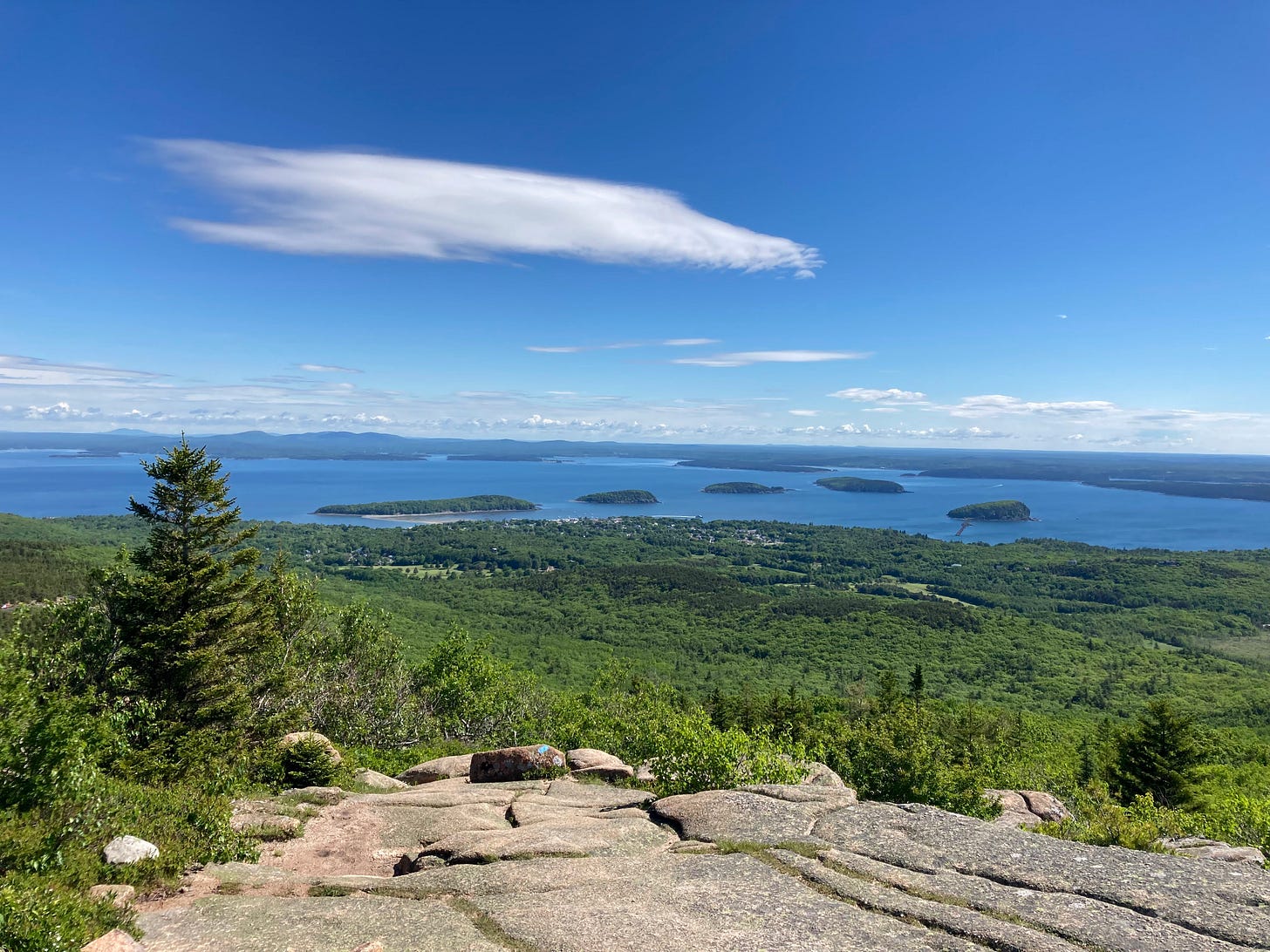Bonds That Make Us Free Session 2A: Reality Isn't Fragmented
The more we understand reality, the more purposeful our practice feels.
The subscription price for Mindset Shifts, which includes Mindset Shifts U, will increase on August 10, 2024. If you are not a paid subscriber, this is an excellent opportunity to subscribe now and beat the price increase.
If you are currently a paid subscriber, as long as you maintain your paid subscription, you will keep your current low subscription price at renewal time.
While others sink into despair over the state of the world, at Mindset Shifts U, you can join other readers in studying the great works of humanity that show the way out of hopelessness. It’s not too late to join the current guided study of Bonds That Make Us Free, and beginning in September, you won’t want to miss this fall’s guided study of F. A. Hayek’s The Road to Serfdom.
Due to the 4th of July weekend, we will stay with Session 2 for another week. This will allow you to catch up and allow newcomers to join in. On July 13, Session 3, covering chapters 5 and 6, will be posted. Consider this a bridge session.
We are in Session 2 of Bonds, and you may be observing that life continues to present frustrating challenges even as we study great works. We can read a passage in Bonds and feel inspired, yet one hour later, we react in characteristic ways we would wish to overcome.
The American philosopher and psychologist William James asked his audience in an 1895 speech, “What sort of a thing would life really be, with your qualities ready for a tussle with it, if it only brought fair weather and gave these higher faculties of yours no scope?”
James was a Stoic scholar, and it is no surprise that his admonition sounded like something Marcus Aurelius would say. Remember that Marcus Aurelius chided himself for wanting to stay in bed.
This resistance that James and Marcus encountered is to be expected. Old mindsets die hard. And that is why ongoing practice is necessary. Be assured that our learning is cumulative, and even when we fall back a bit, that sets the stage for further transformative changes. You may not see your progress daily, but you gradually notice that you engage with life differently. Don't try to grab hold of that change; you can't anyway. But you can keep practicing.
In this essay, I'd like to remind you of one of the characteristics that underlie reality. The more we understand reality, the more purposeful our practice feels.
Cadillac Mountain in Acadia National Park is the highest peak on the Atlantic seaboard. Because there is an auto road, the summit cone, with its grand views, attracts thousands of visitors daily.
Last month, my wife and I hiked up the Cadillac North Ridge Trail. As we paused at the outlook, a couple was having a distressed conversation with an Acadia Park Ranger. The U. S. Geological Survey fastens bronze markers in the ground at many summits, and it was important for them to stand on the marker for Cadillac. The Park Ranger was as perplexed as they were about why there was no marker at what seemed to be the summit of Cadillac. Unknown to many, the high point where visitors crowd is not the real summit.
Having hiked the mountain many times, I joined the conversation to explain that the actual summit was a few hundred yards back off the South Ridge Trail.
The couple had arrived by car and were puzzled by my directions, so I said, come on, I will show you. The Park Ranger wanted to come too, so off we went. To say the couple was overjoyed would be an understatement. Standing on the bronze summit marker was meaningful to them, and they had come a long way to do so on Cadillac Mountain.
When they voiced their issue to the park ranger, what were the odds that I would stand next to them?
What might be called mere coincidence, others call synchronicity. Carl Jung defined synchronicity as “circumstances that appear meaningfully related yet lack a causal connection."
Are we mere bodies hurling through time, living a happenstance existence? Or is reality more than it seems?

